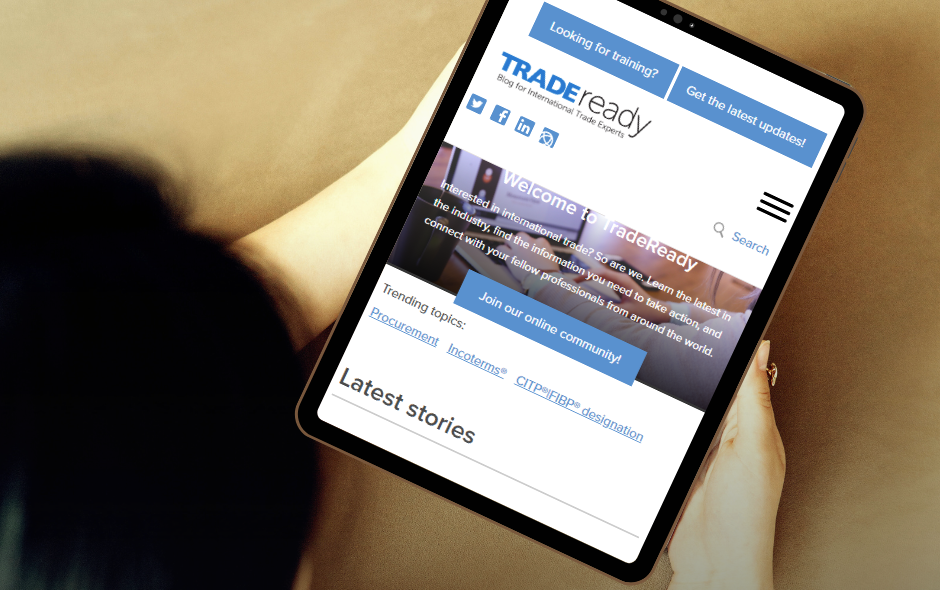 It is estimated that 95% of the world’s consumers reside outside of the United States. That percentage is a beacon of opportunity for American companies looking to export their products and grow their business.
It is estimated that 95% of the world’s consumers reside outside of the United States. That percentage is a beacon of opportunity for American companies looking to export their products and grow their business.
Without the right skills, planning, documentation, international connections and financial resources, exporting can seem like a daunting task for small and medium sized companies (SMEs). Operating with smaller budgets and staffs, they must consider everything, from market research and logistics, to finding buyers and getting paid before entering any new market. Their smaller size also gives them less room for error, underlining the importance of early and sustained success in global markets.
Are you taking full advantage of market research and trade shows?
Even the early stages of preparing to export can present significant hurdles. Market research is an essential component to any market entry strategy, enabling companies to find the best markets for their products, maximize their competitive advantages, and prepare for any potential issues.
Without specialized staff who have training in performing such research, companies face a difficult choice. Is it best to pay experienced researchers to assist with their efforts, or ask inexperienced members of their own staff to add to their workload and take on further responsibility?
Either choice represents a risk for smaller companies.
Trade shows and trade missions are another helpful step in preparing for new markets. They offer companies the chance to showcase their goods and services, meet new partners or clients, and assess the competition firsthand. Such events often require extensive preparation, travel, and extra costs to transport sample goods, displays, etc.
Despite the extensive benefits of participation, many companies struggle to add these events to their overall marketing approach because the cost, in terms of time and money, may be prohibitive due to their smaller size and budget.
What’s the next step for companies with big dreams and smaller resources?
Despite the myriad of obstacles to going global, many companies still engage in exporting because of the long list of benefits in doing so, including increased sales and profits, wider customer bases, diversification of risks, and improved market shares. In 2014, for example, Michigan exported $3.18 billion in food and agricultural products alone.
So how do companies go from point A, deciding to export, to point B, actually becoming successful at exporting?
Navigating the world of international trade can be a lot of work for a company to take on by themselves. However, companies do not have to attempt to export alone. The International Marketing Program at the Michigan Department of Agriculture and Rural Development (MDARD), for example, was created to help Michigan-based food and agricultural companies export their products globally.
The International Marketing Program has a number of programs and services aimed at assisting companies with exporting. To begin the exporting process, the program provides companies with informational export resources, including webinars and seminars. It also helps companies determine top markets for their products by offering market research.
Assisting Michigan SMEs to build connections and engage new markets worldwide
In addition, the program provides activities that connect Michigan suppliers with international buyers through Michigan Pavilions at international and domestic trade shows, trade missions, and buyer missions. These connections bring qualified international buyers to the U.S. to meet with Michigan companies. These events give companies the opportunity to make lasting connections with buyers from all areas of the world.
Companies can also apply for the Branded Program, which reimburses companies for up to 50% of their international marketing costs. This program allows companies to engage more directly with markets around the world. After companies establish connections with buyers and begin exporting, the International Marketing Program continues to help companies with understanding and organizing export documents, logistics, and other details involved in global trade.
Companies interested in exporting or in expanding their exports are encouraged to contact the International Marketing Program Manager, Jamie Zmitko-Somers at zmitkoj@michigan.gov or 517-284-5738.






disqus comments